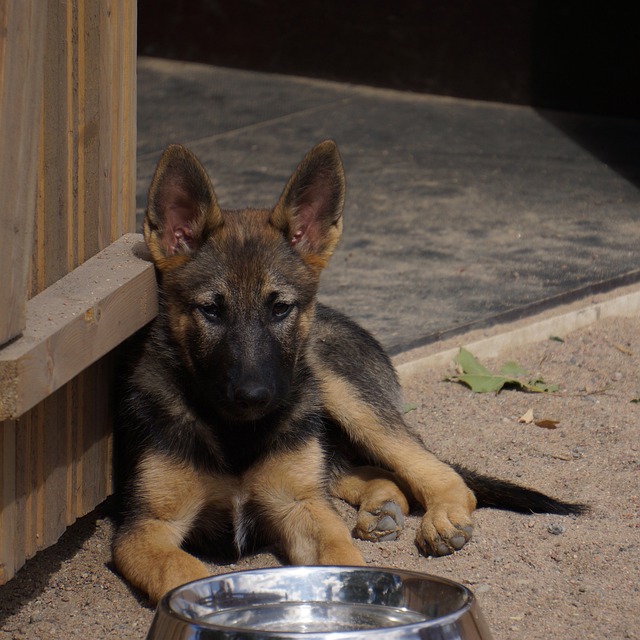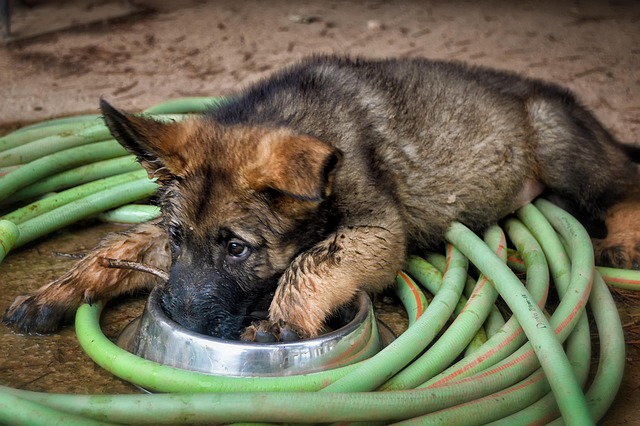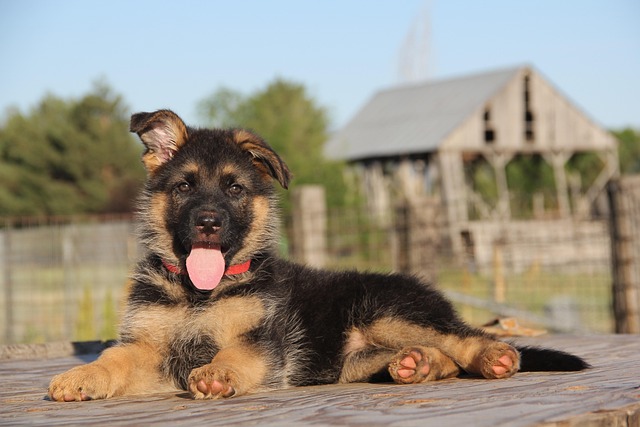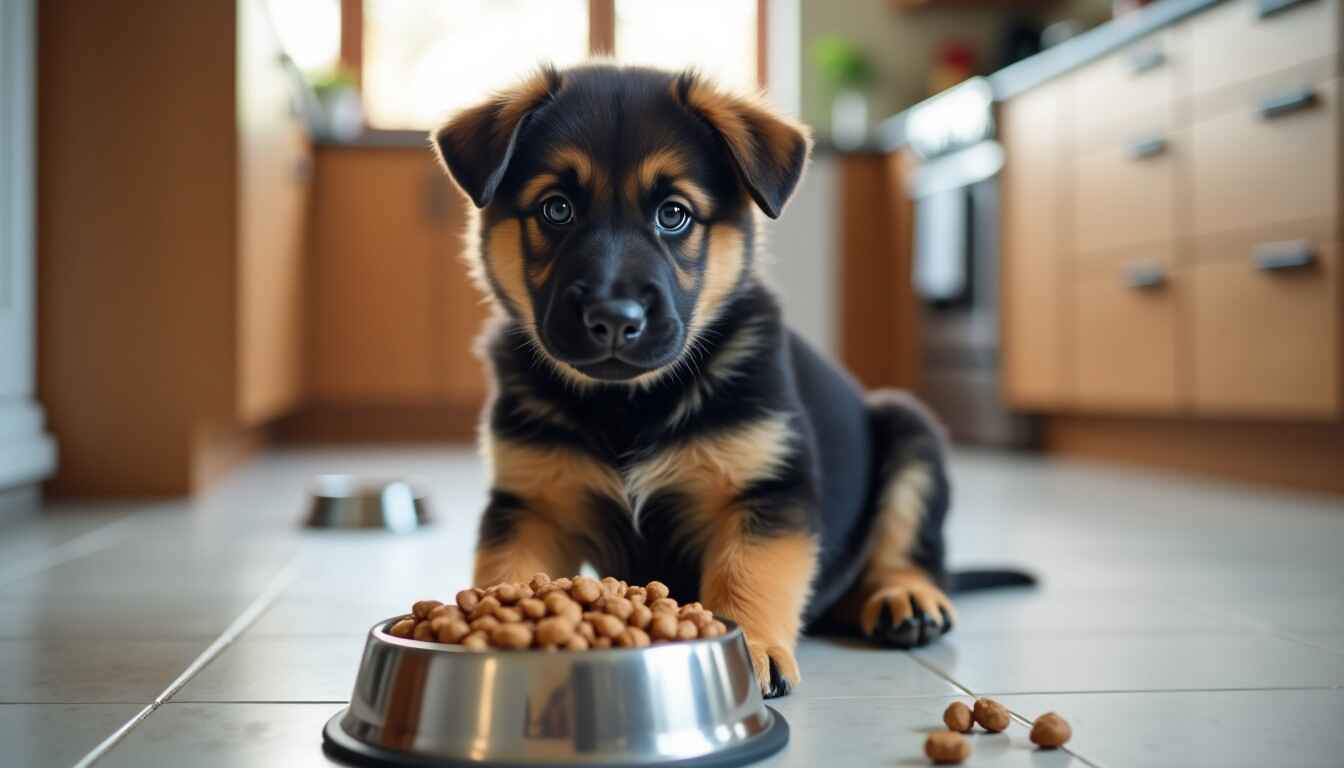Your German Shepherd puppy’s loss of appetite can worry any pet parent. These dogs usually love their food, yet some puppies might surprise you by turning away from their meals.
A German Shepherd puppy that won’t eat could signal several issues. The reasons range from stress and health concerns to simple food boredom or routine changes. These energetic puppies need about two hours of daily exercise, and a lack of activity often reduces their desire to eat. Note that puppies can’t handle long periods without food like adult dogs can. A veterinarian should check your puppy if it hasn’t eaten for more than 24 hours.
This piece explains why your puppy might refuse food and offers vet-approved ways to boost their appetite. You’ll learn to spot minor issues you can fix at home and know when to seek professional help. These insights will help your furry friend return to healthy eating habits quickly.
Understanding Why Your German Shepherd Puppy Is Not Eating
At the time your German Shepherd puppy suddenly loses interest in mealtime, learning about why it happens can help you decide if it’s just a phase or something that needs a vet’s attention.
Common harmless reasons for appetite loss
German Shepherd puppies might skip meals for perfectly normal reasons. Boredom with food stands out as one of the most common causes. Dogs can get tired of eating the same meal every day and might start a brief “hunger strike” until they see something different in their bowl.
Changes in daily routine often mess with a puppy’s eating habits. German Shepherds are highly intelligent and sensitive animals that need consistency. Their appetite might drop temporarily due to moving homes, schedule changes, or even new furniture arrangements.
Teething discomfort makes many puppies eat less. Between three and seven months of age, your puppy grows rapidly. Teething pain makes it hard to chew during this time. You might see them dropping food, moving it around in their mouth, or having trouble with dry kibble, gaining approximately 10% of their body weight monthly
Mild stress or anxiety can reduce appetite in German Shepherd puppies. These sensitive dogs often eat differently when their environment changes. They usually start eating normally once they get used to new situations.
When to start worrying about a puppy not eating
Adult German Shepherds can handle a day or two without food, but puppies cannot go as long without eating. Your German Shepherd puppy needs immediate vet care if they haven’t eaten anything for more than 24 hours.
It also becomes concerning if your puppy:
- Shows disinterest in all food options, including treats
- Displays other symptoms like vomiting, diarrhea, or lethargy
- Has ongoing appetite issues lasting several days
Your puppy needs a vet examination if they haven’t eaten for over 48 hours. Contact your veterinarian within 8-12 hours if your puppy stops eating and shows symptoms like vomiting, diarrhea, or both.
Note that German Shepherd puppies need proper nutrition to support their rapid growth. They should reach about 40% of their adult weight by 3 months. Extended periods without proper nutrition can affect their development much more than it would an adult dog.
Mild Causes: Routine, Boredom, and Food Preferences

Your German Shepherd puppy won’t eat? The answer might be simpler than you think. Let’s get into some common reasons that could explain why your puppy isn’t eager to eat.
Changes in daily schedule
German Shepherds love their routines and predictability. A change in their daily schedule can make them eat less temporarily. These dogs expect their meals at the same times each day. Your puppy might lose interest in food if your work hours move or your family’s routine changes.
Some German Shepherds eat only at specific times—they might want their food at noon or after sunset. As Dr. Hohenhaus notes, “I have preferred times to eat, and dogs do too.” These timing priorities are typically nothing to worry about
Boredom with the same food
Dogs are like us—they can get tired of eating the same thing. Your German Shepherd puppy might be bored with the same meal day after day. According to experts, “Dogs can get tired of eating the same food every day, and sometimes go on hunger strike until we offer them something new!”
Even the best food can become boring over time. German Shepherds stand out as dogs that can be picky about their meals.
Switching food brands or flavors
New food choices can make your puppy excited about meals again. Here are some ways to do it:
- Mix wet food with kibble for different textures
- Add a small amount of warm water or low-sodium broth
- Rotate between different protein sources (chicken, fish, beef)
Quick food changes can upset your puppy’s stomach. Experts suggest: “Day 1: 25% new diet and 75% old diet.. Day 3: 50% new diet and 50% old diet.. Day 5: 75% new diet and 25% old diet.. Day 7: 100% new diet” Transitioning gradually over 5-7 days
Some puppies need an even slower transition. Watch your puppy’s reaction carefully to make sure the new food suits them well.
Moderate Causes: Stress, Dental Issues, and Minor Illnesses

Your German Shepherd puppy might skip meals for several reasons beyond their food priorities. These problems need attention but aren’t immediately life-threatening.
Stress from new environments or changes
German Shepherds have sensitive personalities and react quickly to changes in their environment. A new home, new family members, or even different furniture arrangements can stress them enough to affect their appetite. Their bodies release hormones that suppress hunger when they feel anxious.
Dogs can’t tell the difference between physical pain and emotional stress – both show up the same way in their behavior. Your puppy might seem withdrawn and show less excitement for their favorite activities. They might also appear tense. We focused on fixing why it happens while keeping their daily schedule consistent to help bring back their appetite.
Teething pain and dental discomfort
Your German Shepherd puppy starts losing their baby teeth around 3-4 months old to make room for 42 adult teeth. This process usually lasts until they reach 6 months. Teething can hurt a lot and cause sore gums and jaw pain.
Signs your puppy has dental pain include:
- Excessive drooling or spots of blood on toys
- Pawing at their mouth
- Dropping food or moving it around in their mouth
- They won’t eat hard kibble
Frozen rubber teething toys, edible puppy teething rings, or special chew toys are a great way to get relief for their sore gums.
Mild stomach upsets and how to spot them
German Shepherds don’t deal very well with stomach issues compared to other breeds. Yes, it is common for them to have occasional vomiting, diarrhea, or constipation that reduces their appetite. Most mild stomach problems clear up within 24-48 hours.
All the same, you should get veterinary care if symptoms last longer than 48 hours or your puppy seems lethargic among other digestive issues. A bland diet of boiled chicken and rice helps soothe digestive discomfort in mild cases while providing the nutrition they need.
Serious Causes: Health Problems That Need a Vet

Your German Shepherd puppy’s minor health issues might resolve with patience. However, you just need to get veterinary care right away if your puppy stops eating. Knowing these serious causes helps you recognize when to get professional help.
Signs of infections or parasites
. Your German Shepherd might have worms if you notice: Puppies very commonly get intestinal parasites
- Weight loss with increased appetite – Parasites steal nutrients from food, which leaves puppies hungry but unable to maintain their weight
- Bloated, pot-bellied appearance – This happens often in puppies with roundworms
- Visible worms in stool (looking like rice segments) or around the anal area
- Diarrhea or blood in stool – Hookworms can cause painful, bloody diarrhea
- Vomiting with possible worms visible in the vomit
A puppy with parasites might get a dull coat and become lethargic as the infection gets worse. The good news is that most intestinal worms are easy to treat once your veterinarian diagnoses them.
Symptoms of more serious illnesses
Several serious conditions can make German Shepherd puppies lose their appetite beyond parasites:
Gastric Dilatation-Volvulus (GDV) or bloat threatens your puppy’s life and occurs often in deep-chested breeds like German Shepherds. Look out for abdominal swelling, retching without vomit, excessive drooling, and restlessness.
Infections (bacterial or viral) usually come with fever, lethargy, and sometimes vomiting or diarrhea along with loss of appetite.
Exocrine Pancreatic Insufficiency (EPI) causes severe malnutrition even when eating. German Shepherds often get this degenerative disease before they turn 2.
When to visit the vet immediately
Rush to emergency veterinary care if your puppy:
- Hasn’t eaten anything for more than 24 hours
- Shows signs of bloat (swollen abdomen, failed attempts to vomit)
- Has blood in vomit or stool
- Seems very lethargic or unresponsive
- Has pale gums or breathing problems
Your puppy can’t go without food as long as adult dogs can. Quick veterinary care for serious symptoms can make all the difference between successful treatment and possible tragedy.
Conclusion
It can feel daunting when your German Shepherd puppy stops eating. This piece explores many reasons behind this behavior – from simple food boredom to serious health issues that need a vet’s attention.
Your puppy might refuse food due to harmless reasons like schedule changes, teething pain, or boredom with their daily kibble. Stress or mild stomach problems could also affect their appetite. Watching for other symptoms becomes crucial to determine your next steps.
German Shepherd puppies need regular meals and cannot skip food for long periods. You should contact a vet if your puppy hasn’t eaten for 24 hours. Symptoms like bloating, bloody stools, or extreme lethargy combined with loss of appetite need immediate medical care.
Basic changes often fix appetite problems. Try new food varieties gradually, stick to regular feeding times, and reduce environmental stress. All the same, trust your gut as a pet parent. Any behavior that seems substantially different from normal deserves a professional check.
Keep an eye on your German Shepherd’s eating habits and respond quickly to changes. This helps ensure they grow into the strong, healthy companion you want. Your puppy’s nutrition today shapes their health and wellbeing for years to come.
FAQs
Q1. How long can a German Shepherd puppy go without eating?
German Shepherd puppies should not go more than 24 hours without eating. Unlike adult dogs, puppies cannot safely go for extended periods without food. If your puppy hasn’t eaten for a full day, consult a veterinarian.
Q2. What are some common reasons why a German Shepherd puppy might refuse to eat?
Common reasons include boredom with food, changes in routine, teething discomfort, mild stress or anxiety, and minor stomach upsets. However, if the loss of appetite persists or is accompanied by other symptoms, it’s best to consult a vet.
Q3. How can I encourage my German Shepherd puppy to eat?
Try mixing wet food with kibble, adding warm water or low-sodium broth to dry food, or rotating between different protein sources. Gradually introduce new foods over 5-7 days to prevent stomach upset. Maintaining a consistent feeding schedule can also help.
Q4. When should I be concerned about my puppy’s lack of appetite?
Be concerned if your puppy hasn’t eaten for more than 24 hours, shows disinterest in all food, including treats, or displays symptoms like vomiting, diarrhea, or lethargy alongside appetite loss. In these cases, seek veterinary attention promptly.
Q5. Can teething affect a German Shepherd puppy’s eating habits?
Yes, teething can cause discomfort and affect a puppy’s appetite. Signs of teething include excessive drooling, pawing at the mouth, and reluctance to eat hard kibble. Offering soft foods or frozen teething toys can help alleviate discomfort during this phase.
